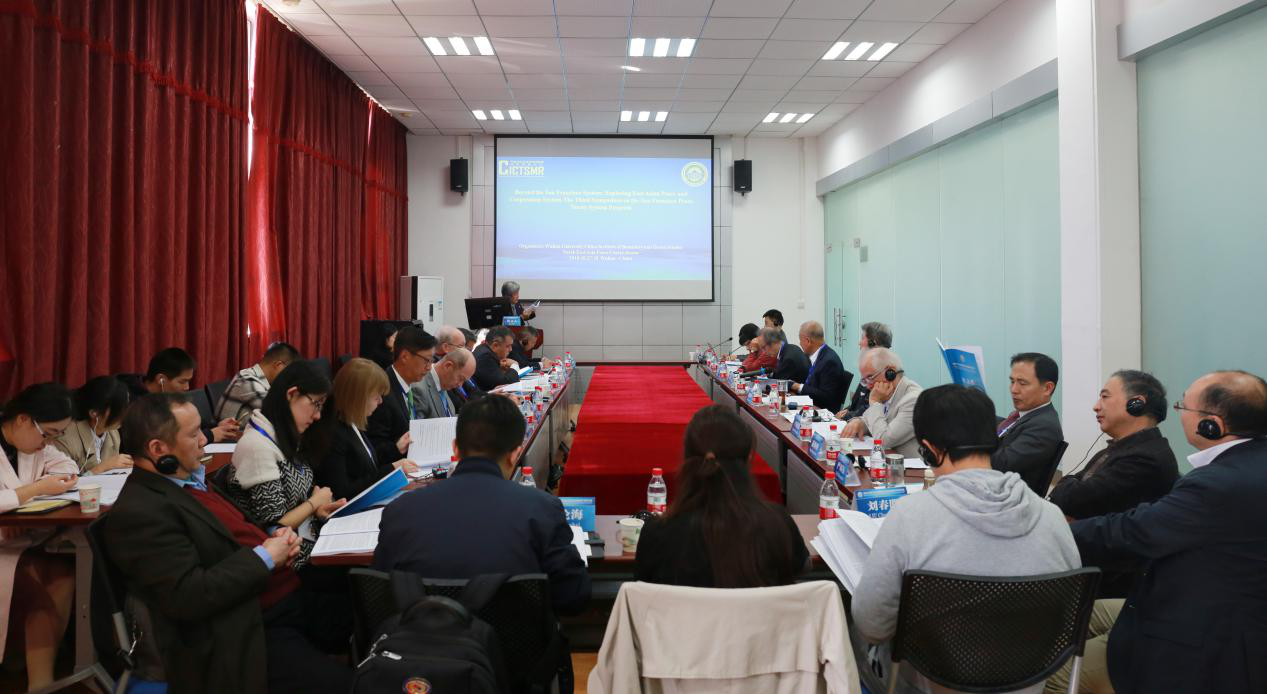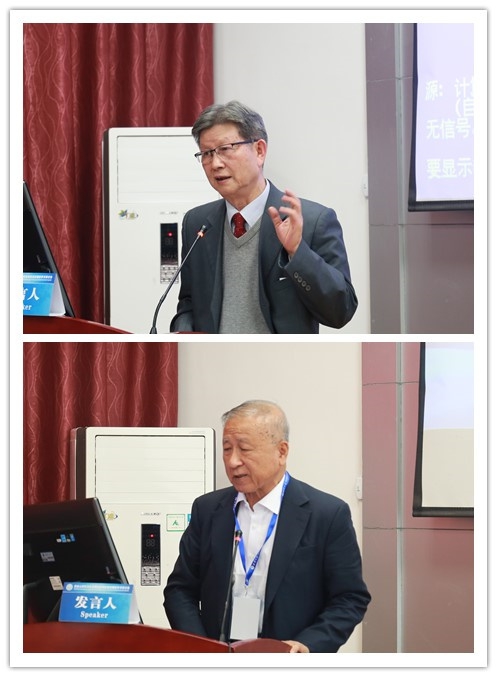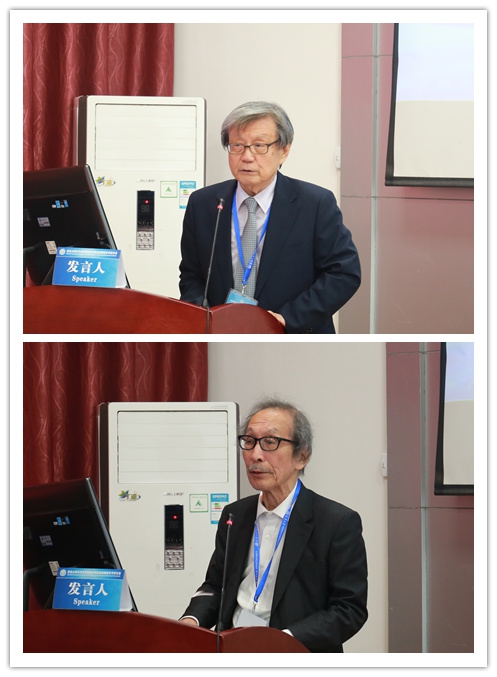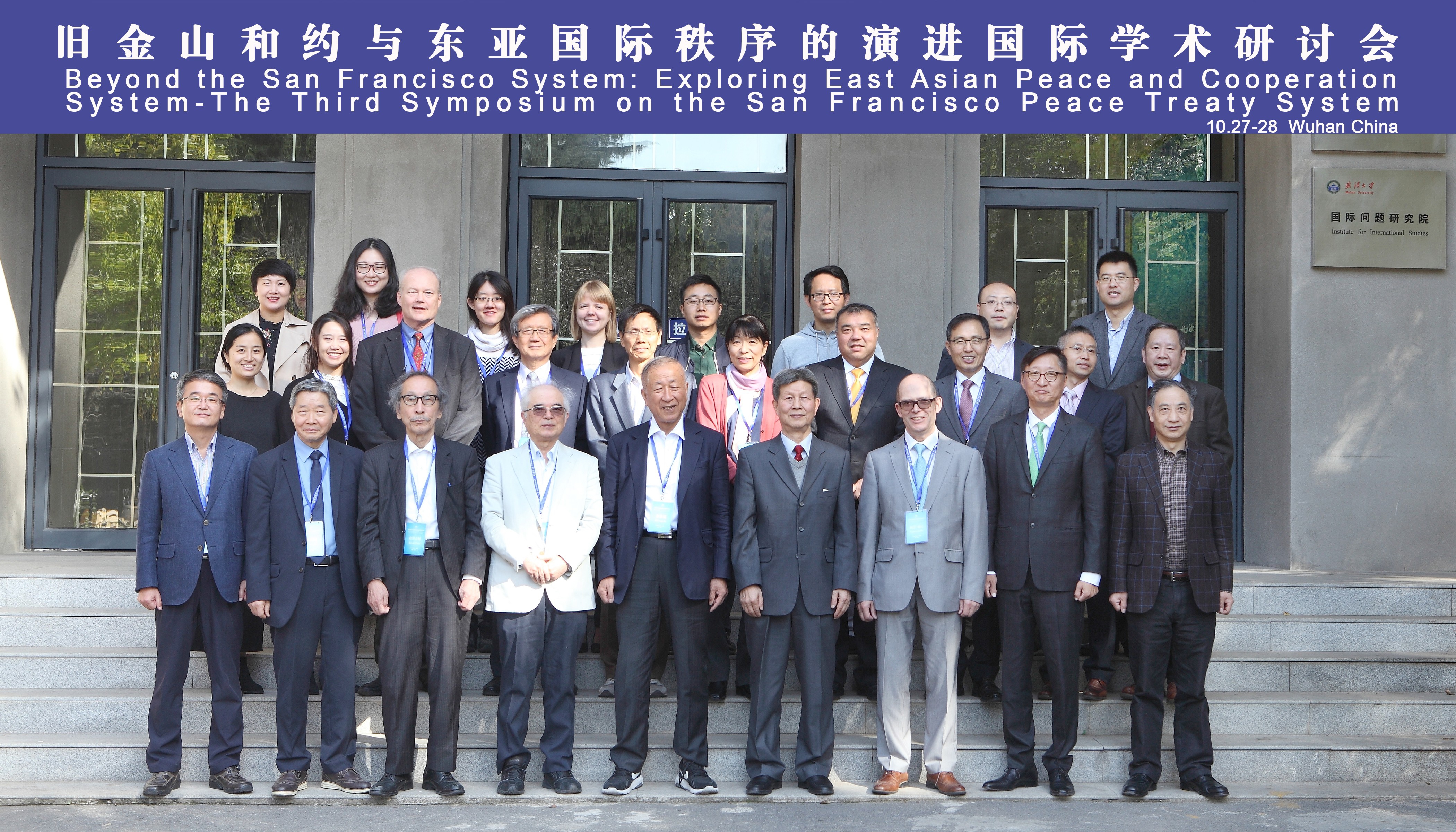The third international symposium entitled San Francisco Peace Treaty and Evolution of East Asian International Order was held by CIBOS at Wuhan University on 27th – 28th October. The symposium was jointly hosted by CIBOS and Northeast Asia Peace Center (R.O.K.). Around 30 experts and scholars from Russia, Japan, R.O.K., the United States and China attended the symposium. Two themes of the symposium are San Francisco Peace Treaty, historical problems and international law and Across San Francisco system: to explore East Asian peace and cooperation framework in 21st century.

Professor Hu Dekun, former vice president of Wuhan University, and Professor Kim Yonghao, director of Northeast Asia Peace Center, attended opening ceremony of the symposium and made speech. Professor Hu said, the symposium aimed to explore methods of building up a new international order in East Asia under San Francisco Peace Treaty system, promoting the new trend of peace, friendship, cooperation and development between China, Russia, R.O.K., Japan, DPRK and other East Asian countries. Professor Kim emphasized the similarities and differences between Treaty of Versailles and San Francisco Peace Treaty. He held the opinion that San Francisco Peace Treaty was lenient to Japan, the defeated country, which offered Japan excuses to avoid punishment of starting the invasion war and deny the facts of aggression, encouraging Japan’s imperialism to spread.

(Professor Hu Dekun and Professor Kim Yonghao)
In keynote speech session, Professor Lee Taizhen from Seoul National University deeply analyzed the development path of Japan’s imperialism expansion and spread in East Asia from the late 19th century to the first half of the 20th century, and emphasized that the international organizations headed by UN have made practical and significant importance and have positive effect in promoting the development of world peace and order. Professor Wada Haruki from Tokyo University analyzed the possibility of constructing a new peace system in East Asia and normalization of the DPRK-Japan relations, reaching to the conclusion that relationship between DPRK and Japan has become focus of the tension situation in Northeast Asia. The US-Japan Security Treaty after World War II, historical problems of Korean War and America’s attitude to DPRK nuclear test continue to threaten the peace in Northeast Asia. He suggested that DPRK and Japan should establish embassy for peaceful negotiation. Professor Hu Dekun regarded San Francisco system as a serious barrier for Northeast Asia achieving peace. He said, in his speech, the concept of a community with shared future for mankind proposed by President Xi Jinping contributes to solving territorial and maritime disputes through cooperation, making it possible to build up a peaceful and stable new order in Northeast Asia.

( Professor Lee Taizhen and Professor Wada Haruki)
In topic speech session, experts and scholars had in-depth discussions and frank exchanges on two themes of the symposium, and contributed their latest research results, which not only enhanced their understanding of academic concepts, but also deepened their international friendship.This symposium is also an interdisciplinary academic discussion involving history, politics, law and other subjects. Guests had conducted in-depth discussions on common issues from different disciplines based on their respective professional backgrounds. Chinese and foreign scholars will continue to carry out this kind of intelligent cooperation and use the concept of a community with shared future for mankind to further promote the improvement of the international order in Northeast Asia and contribute to the friendship, peace, development and prosperity of Northeast Asia.

(Rewritten by Yu Minna)
(Edited by Fu Shanshan)
